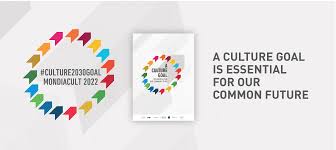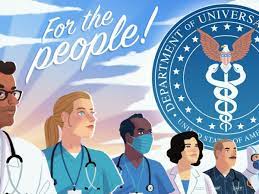Navigating Global Healthcare: The Role of Medical Tourism Facilitation
The Role of Medical Tourism Facilitation in Global Healthcare
Medical tourism facilitation plays a crucial role in the rapidly growing industry of global healthcare. As more individuals seek high-quality medical treatments abroad, facilitators act as intermediaries who streamline the process and provide essential support to patients throughout their medical journey.
One of the key functions of medical tourism facilitators is to help patients navigate the complex landscape of healthcare options available in different countries. They assist in selecting reputable hospitals, clinics, and specialists that meet the specific needs and preferences of each patient. By leveraging their extensive network of healthcare providers, facilitators ensure that patients have access to top-notch medical care that is tailored to their individual requirements.
Facilitators also play a vital role in coordinating all aspects of the medical travel experience, including travel arrangements, accommodation bookings, language interpretation services, and post-treatment care. This comprehensive support helps alleviate the logistical burdens associated with seeking medical treatment abroad and allows patients to focus on their health and recovery.
Moreover, medical tourism facilitators contribute to enhancing transparency and trust in the industry by providing accurate information about treatment options, costs, and expected outcomes. By offering clear communication and guidance at every step of the process, facilitators empower patients to make informed decisions about their healthcare choices.
In addition to assisting individual patients, medical tourism facilitators also play a role in promoting cross-border collaborations between healthcare providers worldwide. By fostering partnerships and facilitating knowledge exchange among institutions, facilitators contribute to advancing global healthcare standards and driving innovation in medical practices.
In conclusion, medical tourism facilitation serves as a valuable resource for individuals seeking quality healthcare solutions beyond their home countries. With their expertise, networks, and dedication to patient well-being, facilitators play a pivotal role in ensuring a positive and seamless experience for those embarking on the journey of medical tourism.
7 Benefits of Medical Tourism Facilitation: Quality Care, Cost Savings, and Cultural Exploration
- Access to high-quality medical care at lower costs
- Wide range of treatment options and specialized services available
- Personalized assistance in selecting reputable healthcare providers
- Comprehensive support with travel arrangements and logistics
- Facilitation of language interpretation services for better communication
- Opportunity to explore different cultures while receiving medical treatment
- Enhanced transparency and information sharing about healthcare options
Five Key Concerns About Medical Tourism Facilitation: Quality, Communication, Costs, Continuity, and Cultural Differences
- Limited regulatory oversight in some countries may raise concerns about the quality and safety of medical treatments offered through facilitators.
- Communication barriers due to language differences can lead to misunderstandings between patients, facilitators, and healthcare providers.
- Unexpected additional costs such as travel expenses, accommodation, and post-treatment care may escalate the overall financial burden on patients.
- Lack of continuity of care after returning home can pose challenges for patients in terms of follow-up appointments and ongoing support.
- Cultural differences in healthcare practices and patient expectations may result in dissatisfaction or discomfort during the treatment process.
Access to high-quality medical care at lower costs
Medical tourism facilitation offers a compelling advantage by providing access to high-quality medical care at significantly lower costs. By connecting patients with healthcare providers in countries where medical expenses are more affordable, facilitators enable individuals to receive top-notch treatments without compromising on quality. This cost-effectiveness factor not only makes advanced medical procedures more accessible to a broader population but also allows patients to save money compared to undergoing the same treatments in their home countries. This pro of medical tourism facilitation underscores its value in ensuring that individuals can access world-class healthcare services while enjoying substantial cost savings.
Wide range of treatment options and specialized services available
Medical tourism facilitation offers a significant advantage in providing access to a wide range of treatment options and specialized services that may not be readily available in a patient’s home country. By partnering with leading hospitals and healthcare providers worldwide, facilitators can connect patients with cutting-edge medical treatments, innovative procedures, and specialized expertise tailored to their specific healthcare needs. This pro of medical tourism facilitation ensures that patients have access to a diverse array of healthcare options, enabling them to explore alternative treatments and receive personalized care that may not be accessible locally.
Personalized assistance in selecting reputable healthcare providers
One significant advantage of medical tourism facilitation is the personalized assistance it offers in selecting reputable healthcare providers. By leveraging their expertise and extensive network of trusted hospitals and clinics, facilitators can match patients with healthcare providers that best suit their specific needs and preferences. This tailored approach ensures that patients receive high-quality medical care from accredited professionals, enhancing their confidence in the treatment process and ultimately leading to better health outcomes.
Comprehensive support with travel arrangements and logistics
One significant advantage of medical tourism facilitation is the provision of comprehensive support with travel arrangements and logistics. By assisting patients in coordinating flights, accommodations, local transportation, and other logistical details, facilitators alleviate the stress and uncertainty associated with traveling for medical treatment. This level of support ensures that patients can focus entirely on their health and recovery, knowing that all aspects of their journey have been carefully arranged and managed.
Facilitation of language interpretation services for better communication
One significant advantage of medical tourism facilitation is the provision of language interpretation services, which greatly enhances communication between patients and healthcare providers. By offering professional interpreters fluent in multiple languages, facilitators ensure that patients can effectively communicate their medical concerns, understand treatment options, and follow post-treatment instructions. This service not only eliminates language barriers but also fosters clear and accurate communication, leading to improved patient satisfaction and better health outcomes.
Opportunity to explore different cultures while receiving medical treatment
One significant advantage of medical tourism facilitation is the opportunity it provides for patients to explore different cultures while receiving medical treatment. By seeking healthcare services in a foreign country, patients can immerse themselves in new environments, traditions, and experiences, enriching their overall healing journey. This cultural exposure not only offers a fresh perspective but also contributes to personal growth and understanding. It allows patients to embrace diversity, broaden their horizons, and create lasting memories beyond the confines of a hospital room, enhancing the holistic nature of their healing process.
Enhanced transparency and information sharing about healthcare options
One of the key benefits of medical tourism facilitation is the enhanced transparency and information sharing about healthcare options available to patients. Facilitators provide valuable insights into various treatment choices, costs, and expected outcomes, empowering individuals to make well-informed decisions about their medical care. By offering clear and accurate information, facilitators help patients navigate the complexities of global healthcare and ensure that they have access to quality treatments that align with their specific needs and preferences. This transparency not only builds trust between patients and healthcare providers but also contributes to a more transparent and efficient healthcare system overall.
Limited regulatory oversight in some countries may raise concerns about the quality and safety of medical treatments offered through facilitators.
Limited regulatory oversight in some countries can be a significant con of medical tourism facilitation, as it may raise concerns about the quality and safety of medical treatments provided by facilitators. In regions where regulatory standards are lax or poorly enforced, there is a higher risk of substandard care, unqualified practitioners, and inadequate facilities. Patients considering medical tourism through facilitators in such countries must exercise caution and conduct thorough research to ensure that they receive safe and effective treatments that meet international healthcare standards.
Communication barriers due to language differences can lead to misunderstandings between patients, facilitators, and healthcare providers.
Communication barriers stemming from language differences pose a significant conundrum in the realm of medical tourism facilitation. These barriers can give rise to misunderstandings among patients, facilitators, and healthcare providers, potentially compromising the quality of care and patient outcomes. Inadequate communication may impede the accurate conveyance of medical information, treatment plans, and post-operative instructions, leading to confusion and misinterpretation. Moreover, linguistic challenges can hinder the establishment of trust and rapport between parties involved in the healthcare process, ultimately underscoring the critical need for effective language interpretation services and cultural sensitivity training within the realm of medical tourism facilitation.
Unexpected additional costs such as travel expenses, accommodation, and post-treatment care may escalate the overall financial burden on patients.
One significant drawback of medical tourism facilitation is the potential for unexpected additional costs to arise, including travel expenses, accommodation fees, and post-treatment care charges. These unforeseen financial burdens can significantly escalate the overall cost of seeking medical treatment abroad, placing strain on patients who may not have budgeted for such expenses. The lack of transparency regarding these extra costs can lead to financial stress and uncertainty for individuals seeking healthcare options outside their home country through facilitators.
Lack of continuity of care after returning home can pose challenges for patients in terms of follow-up appointments and ongoing support.
The lack of continuity of care after returning home from medical tourism can present significant challenges for patients in terms of follow-up appointments and ongoing support. Without a seamless transition back to their local healthcare providers, patients may face difficulties in coordinating post-treatment care, accessing necessary follow-up appointments, and receiving continuous support for their recovery. This discontinuity can lead to gaps in medical monitoring, potential complications going unnoticed, and a sense of disconnection from the healthcare system, ultimately impacting the overall quality and effectiveness of the treatment received abroad.
Cultural differences in healthcare practices and patient expectations may result in dissatisfaction or discomfort during the treatment process.
One significant con of medical tourism facilitation is the potential clash of cultural differences in healthcare practices and patient expectations, which can lead to dissatisfaction or discomfort during the treatment process. Patients traveling abroad for medical care may encounter unfamiliar treatment approaches, communication styles, or healthcare norms that differ from what they are accustomed to in their home countries. This discrepancy in cultural practices can create confusion, miscommunication, or even feelings of unease for patients, impacting their overall experience and satisfaction with the medical treatment received.



